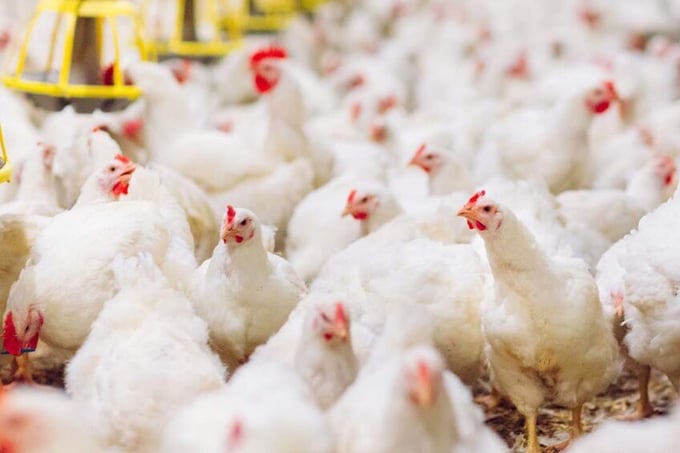May 16, 2025 | 08:06 GMT +7
May 16, 2025 | 08:06 GMT +7
Hotline: 0913.378.918
May 16, 2025 | 08:06 GMT +7
Hotline: 0913.378.918

Under a new set of veterinary rules, free-range poultry will be banned from 1 March 2025. Photo: Canva
The Russian Agricultural Ministry has proposed banning free-range poultry, citing the need to protect industrial farms from infectious diseases. The step is expected to hurt thousands of backyard farms and the organic segment.
Under a new set of veterinary rules, free-range poultry will be banned from 1 March 2025. Russian poultry industry executives spoke in favour of this step.
Vladimir Fisinin, president of the Russian Poultry Union, told a local publication, Veterinary & Life, that the measure would be correct from the point of view of biological safety of the Russian poultry industry. He added that free-range poultry can come into contact with wild animals, jeopardising the production process.
“A violent spread of avian influenza is seen in Europe, where liberal legislation with cage-free keeping of birds is practised. This leads to contact between farm poultry and wild birds and infection of the flock with avian influenza,” Julia Melano, an advisor to the head of the Russian veterinary watchdog Rosselhoznadzor, told the publication.
According to Rosselhoznadzor, 412 highly pathogenic avian influenza outbreaks have been registered in Europe since the beginning of 2024.
“The new rules prohibiting free range make organic production impossible…”
Russian market players earlier voiced deep concerns that such a ban can potentially devastate small independent farms and backyard farms, which could mean a significant loss of livelihood for these farmers.
The Russian state statistical service Rosstat calculated in 2023 that independent farms accounted for 15% of broiler meat and 18% of egg production in Russia.
Russian producers of organic products also expressed grave fears that the ban on free-range poultry would not just slow down, but completely halt the development of the segment. This could have a profound impact on the availability of organic products in the market.
The Russian Union of Organic Farming, a key player in the organic sector, told the publication that the state standards for organic poultry production, among other things, require free-ranging, with the duration of artificial lighting limited to 16 hours a day. This means that the ban on free-range poultry could significantly impact the ability of organic farmers to meet these standards, potentially leading to a decrease in the availability of organic poultry products in the market.
“The new rules prohibiting free range make organic production impossible,” the Union said.
Fisinin argued that this is not the case. He pointed out that organic production largely depends on bird nutrition and will still be possible after the new rules come into force. “The feed should be based on grain grown without the use of chemicals and mineral fertilisers,” he indicated, not addressing the manufacturers’ fears.
Organic poultry production has perked up in Russia in the past few years, though this segment is still believed to be small.
(PW)

(VAN) Fourth most important food crop in peril as Latin America and Caribbean suffer from slow-onset climate disaster.

(VAN) Shifting market dynamics and the noise around new legislation has propelled Trouw Nutrition’s research around early life nutrition in poultry. Today, it continues to be a key area of research.

(VAN) India is concerned about its food security and the livelihoods of its farmers if more US food imports are allowed.

(VAN) FAO's Director-General emphasises the need to work together to transform agrifood systems.

(VAN) Europe is facing its worst outbreak of foot-and-mouth since the start of the century.

(VAN) The central authorities, in early April, released a 10-year plan for rural vitalization.

(VAN) Viterra marked a significant milestone in its carbon measurement program in Argentina, called Ígaris, reaching 1 million soybean hectares measured.